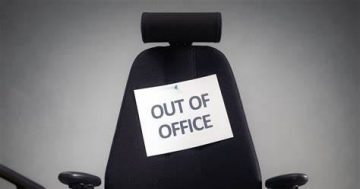Laura Stack* says organisations that require employees to account for every minute they spend in the workplace are doing themselves, and their workers, no favours.
 “Here’s my timesheet, filled out in increments of 15 minutes.
“Here’s my timesheet, filled out in increments of 15 minutes.
“As usual, I coded the useless hours spent in meetings as ‘work’, whereas the time I spent in the shower designing circuits in my mind is ‘non-work’.
“Interestingly, even the time I spent complaining about my lack of productivity is considered ‘work’.”
This scene from a Dilbert comic strip may be familiar to anyone who has been required, at one time or another, to track their work time.
You’ve probably been there, scrambling to figure out what the heck you did from 1:15 to 1:30 last Thursday afternoon.
Were you working on Project A, B, or C? Were you cleaning your cube or organising files to enhance your long-term productivity?
Was that the day you spent a long lunch with the head of the team you are liaising with?
Or were you taking a bio-break or getting some coffee… and if so, what project do you assign it to?
More pressing, perhaps, is how you allot the time you spent filling out your timesheet instead of working. There probably isn’t a special code just for it.
If you’re more fastidious than most, how often should you update your timesheet? Every day, every hour, or heaven forbid, even more often?
One of my colleagues once had a co-worker who would carefully track each tenth-hour, even to the point of writing down when you walked into his office to speak with him.
Administrators and management justify time-tracking because they claim it helps them plan for the future.
It gives them accurate estimates on time spent and productivity for each project, helps them bill separately for internal and external clients, or because they’re required to by the Government.
Tightly tracking your work time may help with some metrics, at least insofar as they’re based on your and your co-workers’ guesses after the fact.
However, there are problems that overturn most, if not all, of the above excuses.
Time tracking comes laden with baggage
It expresses the sentiment that management doesn’t trust you and wants you to justify every minute.
It also smacks of micro-management, and can be demoralising and distracting to the point of affecting morale.
It wastes valuable work time
How much depends on the person, but several time-tracking app sites claim up to 13 per cent.
That’s more than five hours per 40-hour week.
I personally thank this is a little high, but even an hour a week is too much.
It typically gets done all at once
Workers who do this (i.e., most of us), may not remember everything accurately.
Therefore, tracking doesn’t necessarily contribute to more accurate future estimates; nor does it help HR calculate labour costs, or contribute to future planning.
It is useless if you work on one project at a time
Many workers focus on monolithic projects, such as coding for a new app or program.
Often these are broken down into subtasks, but even then, you may end up working on one thing all day for weeks, months, even years.
If you’re only working one project, why bother breaking it down daily into solid blocks of single tasks, then adding another line item for the time you wasted filling out your timesheet?
It can be an arbitrary measure of your productivity
Especially if it doesn’t really reflect what you do in terms of performance.
Just because you spent a certain amount of time on Project A vs. a lesser amount on Project C doesn’t mean you accomplished less on Project C.
You could have run into problems on Project A that slowed your progress. It happens. And yes, epiphanies do occur in the shower.
Closely tracking your work time can be a good thing if trying to determine where your time goes, and you’re diligent about it.
It’s also fine for those who charge clients by the hour and for payroll professionals.
Otherwise, it’s just another hassle, and if you’re like most of us, you are trying to remember what you did after the fact, inaccurately.
You are confused about whether to include non-work like coffee and breaks.
Or simply, you really don’t need it. In the end, there may be no reasonable point in tracking your time at all.
*Laura Stack is an award-winning keynote speaker, bestselling author, and authority on productivity and performance.
She can be contacted at theproductivitypro.com
This article first appeared on Laura’s blogsite.











